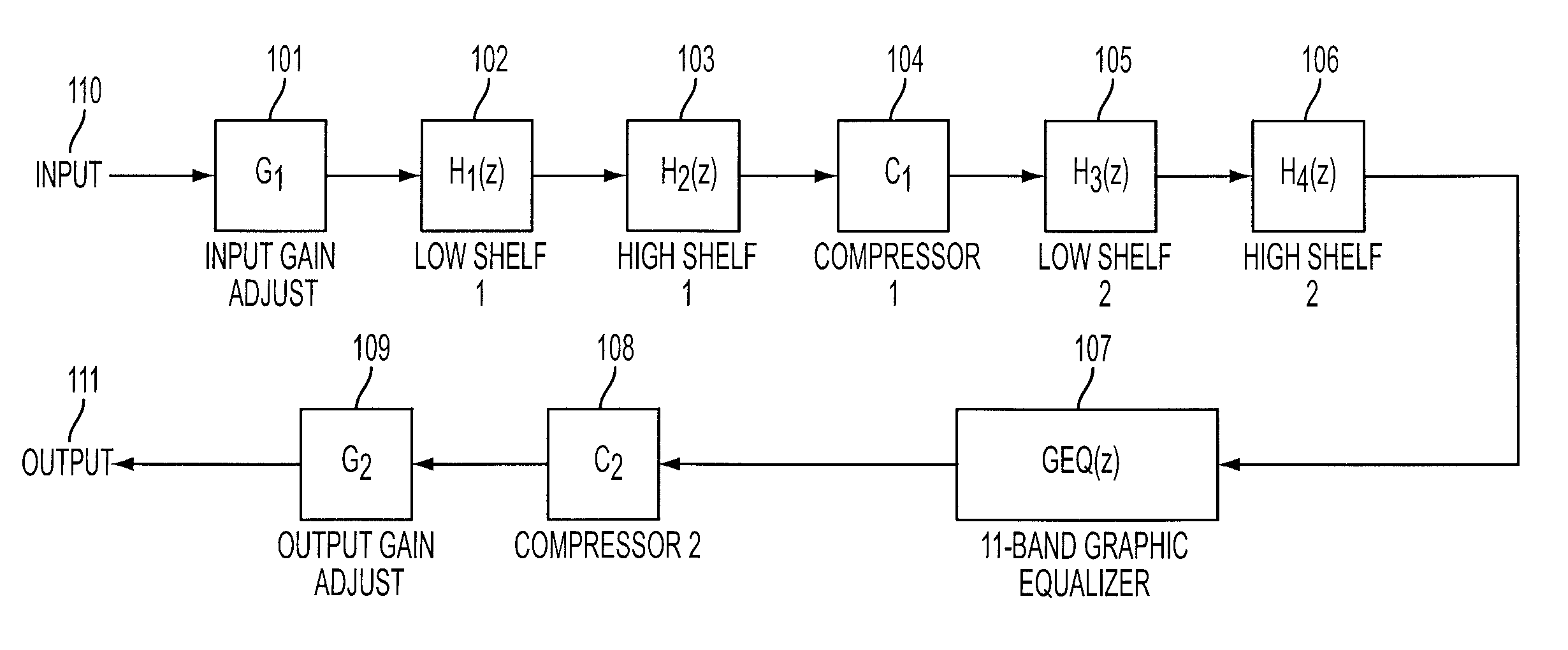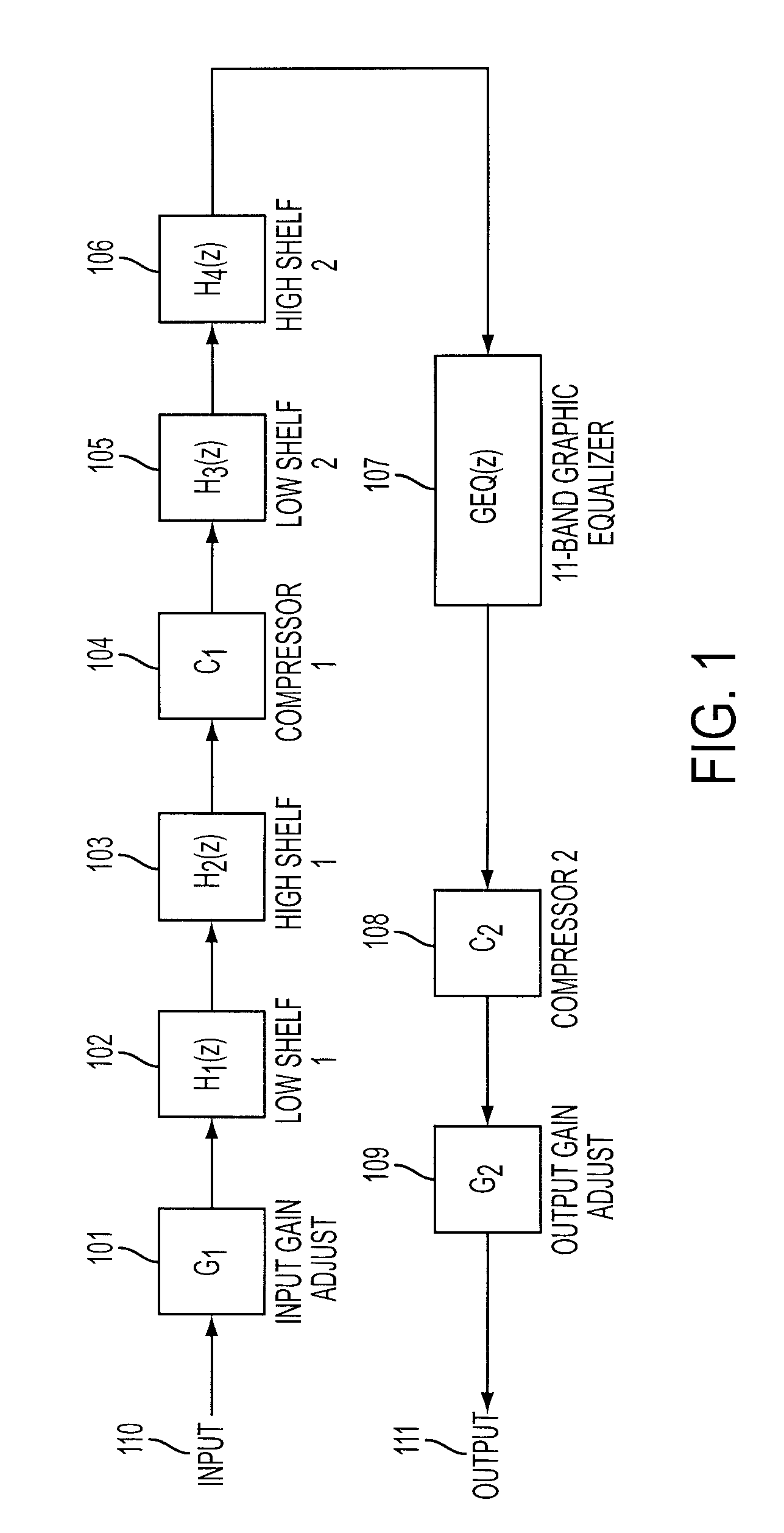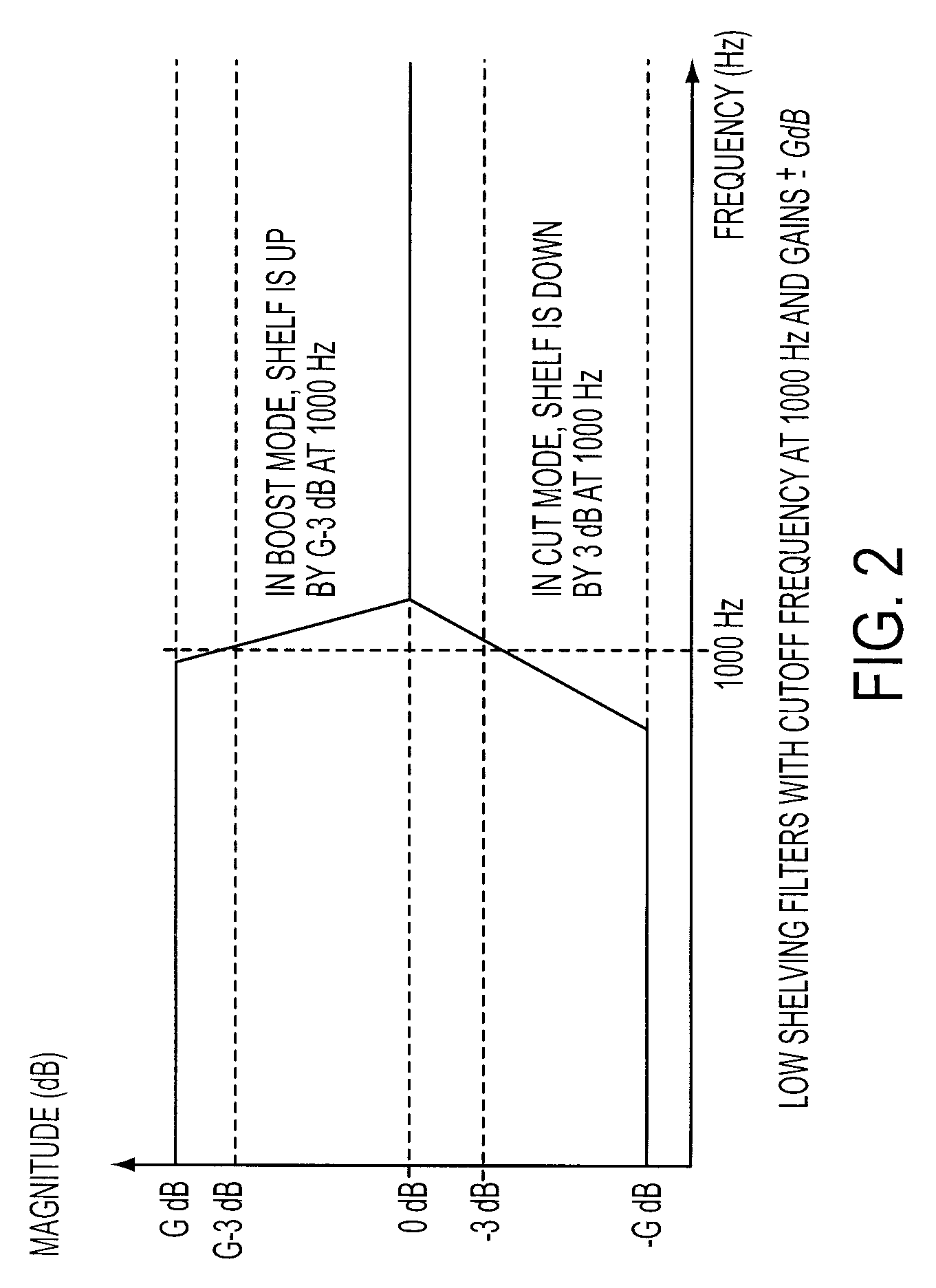[0009]The present invention further meets the above stated needs by allowing inexpensive speakers to be used in the reproduction of studio-quality sound. Furthermore, the present invention meets the existing needs described above by providing for a mobile audio device that can be used in a vehicle to reproduce studio-quality sound using the vehicle's existing speaker system by digitally manipulating audio signals. Indeed, even the vehicle's factory-installed speakers can be used to achieve studio-quality sound using the present invention.
[0010]In one embodiment, the present invention provides for a method comprising the steps of inputting an audio signal, adjusting the gain of that audio signal a first time, processing that signal with a first low shelf filter, processing that signal with a first high shelf filter, processing that signal with a first compressor, processing that signal with a second low shelf filter, processing that signal with a second high shelf filter, processing that signal with a graphic equalizer, processing that signal with a second compressor, and adjusting the gain of that audio signal a second time. In this embodiment, the audio signal is manipulated such that studio-quality sound is produced. Further, this embodiment compensates for any inherent volume differences that may exist between audio sources or program material, and produces a constant output level of rich, full sound.
[0011]This embodiment also allows the studio-quality sound to be reproduced in high-noise environments, such as moving automobiles. Some embodiments of the present invention allow studio-quality sound to be reproduced in any environment. This includes environments that are well designed with respect to acoustics, such as, without limitation, a concert hall. This also includes environments that are poorly designed with respect to acoustics, such as, without limitation, a traditional living room, the interior of vehicles and the like. Further, some embodiments of the present invention allow the reproduction of studio-quality sound irrespective of the quality of the electronic components and speakers used in association with the present invention. Thus, the present invention can be used to reproduce studio-quality sound with both top-of-the-line and bottom-of-the-line electronics and speakers, and with everything in between.
[0012]In some embodiments, this embodiment may be used for playing music, movies, or video games in high-noise environments such as, without limitation, an automobile, airplane, boat, club, theatre, amusement park, or shopping center. Furthermore, in some embodiments, the present invention seeks to improve sound presentation by processing an audio signal outside the efficiency range of both the human ear and audio transducers which is between approximately 600 Hz and approximately 1,000 Hz. By processing audio outside this range, a fuller and broader presentation may be obtained.
[0014]In some embodiments, the bass portion of the audio signal may be reduced before compression and enhanced after compression, thus ensuring that the sound presented to the speakers has a spectrum rich in bass tones and free of the muffling effects encountered with conventional compression. Furthermore, in some embodiments, as the dynamic range of the audio signal has been reduced by compression, the resulting output may be presented within a limited volume range. For example, the present invention may comfortably present studio-quality sound in a high-noise environment with an 80 dB noise floor and a 110 dB sound threshold.
[0020]In this embodiment, the mobile audio device or separate device of the present invention may be specifically tuned to each vehicle it may be used in to obtain optimum performance and to account for unique acoustic properties in each vehicle such as speaker placement, passenger compartment design, and background noise. Also in this embodiment, the mobile audio device or separate device of the present invention may provide precision tuning for all 4 independently controlled channels. Also in this embodiment, the mobile audio device of the present invention may deliver about 200 watts of power. Also in this embodiment, the mobile audio device of the present invention may use the vehicle's existing (sometimes factory-installed) speaker system to produce studio-quality sound. Also in this embodiment, the mobile audio device of the present invention may comprise a USB port to allow songs in standard digital formats to be played. Also in this embodiment, the mobile audio device of the present invention may comprise an adapter for use with satellite radio. Also in this embodiment, the mobile audio device of the present invention may comprise an adaptor for use with existing digital audio playback devices such as, without limitation, MP3 players. Also in this embodiment, the mobile audio device of the present invention may comprise a remote control. Also in this embodiment, the mobile audio device of the present invention may comprise a detachable faceplate.
 Login to View More
Login to View More  Login to View More
Login to View More 


